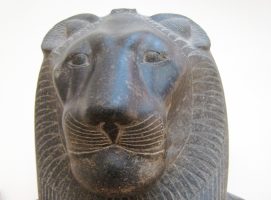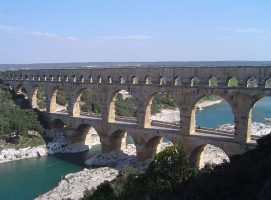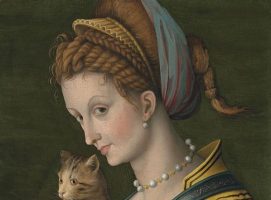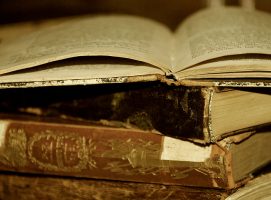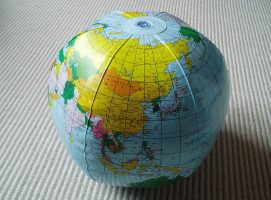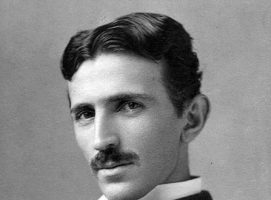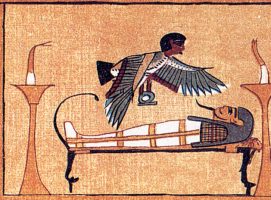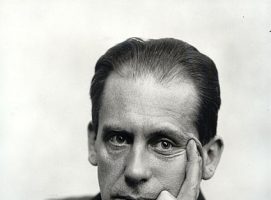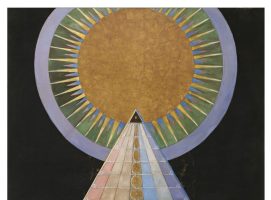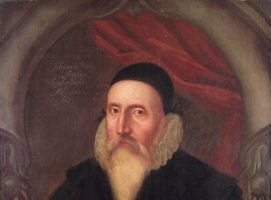Showing 104 articles
The Power of Life
Author: Natalya PetlevychMay 13, 2017
Spring gives us a unique opportunity to witness the immense power of life. Everything in nature awakens, opens up to the warmth of the sun and actively grows unfolding its potential. Observing nature I remembered the ancient Egyptian concept of “sekhem”, usually translated as “power”. It has several aspects of meaning, indicating power in action. [...]The Industrial Revolutions
Author: Alfredo AguilarMay 13, 2017
We have all encountered, from our school days to the present day, all kind of references about the industrial revolution and how it changed life first in Britain and then in the whole world. A shift from an agricultural life to people migrating to live in the growing cities, in order to work in the [...]Ancient Technology
Author: Florimond KrinsMay 13, 2017
When looking at ancient archaeological features one can be mesmerised by the beauty, complexity and grandeur of some of the buildings, statues or artefacts. In most cases these structures were created at a time of prosperity when skills of a high standard and workforce were abundant. However, in the cases of the Old kingdom of [...]Art and Beauty in the Middle Ages
Author: Julian ScottMay 13, 2017
The title of this article comes from a book by Umberto Eco, an Italian philosopher, essayist, professor of literature and novelist, most famous for his medieval whodunnit The Name of the Rose, which was made into a film starring Sean Connery. In this book, Eco introduces us to a culture very different from our own. [...]The Danger of ‘Historical Illiteracy’
Author: Sabine LeitnerApril 30, 2017
Studies in several countries have highlighted that there is growing ignorance and lack of interest amongst young people about even basic historic facts of fairly recent national history. Americans of all ages fail to answer simple questions like “Who won the Civil War” and “Who did we gain independence from?” One of the most frequent [...]A Revolution for the Future
Author: Pierre PoulainApril 17, 2017
It will not surprise anyone if we say that the world we are living in has become “global”. Although this globalization was initiated at the political and economic levels at the end of the second world war, it became subject to a huge acceleration at the end of the 20th century, first with the development [...]Nikola Tesla, forgotten inventor.
Author: Florimond KrinsApril 17, 2017
Nikola Tesla was probably one of the greatest minds of the 19th and 20th centuries, yet his name is rarely associated with one of his many inventions, AC electric power. When we mention the discovery of electricity, or how we came to use it in our modern civilisation, we think first of Thomas Edison, Michael [...]The constitution of the human being in the Western tradition
Author: Agostino DominiciFebruary 7, 2017
From time immemorial, human beings have asked themselves the question ‘who am I?’ And philosophers, theologians and metaphysicians have all come up with different answers. The classification of the various human ‘constituents’, from one system of thought to another might have changed, but the underlying principles in question have remained the same. Thus, even though [...]Utopia at The Bauhaus
Author: Siobhan FarrarJanuary 27, 2017
Four hundred years ago in 1516, Thomas More wrote his extraordinary piece of work ‘Utopia’. More derived the word Utopia from the Greek words ‘ou’ & ‘topos’, which together translate as ‘nowhere’. Rather than being a blueprint for a fantasy future society, Utopia is aimed much more at our faculty of imagination – it encourages [...]Hilma Af Klint: Painting the Unseen
Author: Siobhan FarrarNovember 12, 2016
Earlier this year the Serpentine Gallery held an exhibition described by the Telegraph as “a sense of unfathomable mystery”. Hilma Af Klint, a Swedish born female painter who began producing work in the early 1900s, is beginning to be recognised as the first artist ever to have produced a piece of ‘abstract art’. Prior to [...]The need for a vision of the future
Author: Sabine LeitnerNovember 12, 2016
I recently read a review of the book “Eden 2.0: Climate Change and the Search for a 21st Century Myth”. The central argument of the book is that humanity needs to find – rather fast – a myth that would enable us to transcend our differences and inspire us to follow a radically new course. [...]John Dee – Magician, Mathematician and Angelologist
Author: Julian ScottNovember 12, 2016
Earlier this year a remarkable exhibition was shown at the Royal College of Physicians in Regent’s Park, London: Scholar, courtier, magician: the lost library of John Dee. Born in 1527, of Welsh ancestry, John Dee was one of Tudor England’s most extraordinary and enigmatic figures. A brilliant mathematician, he was offered the chair of mathematics [...]